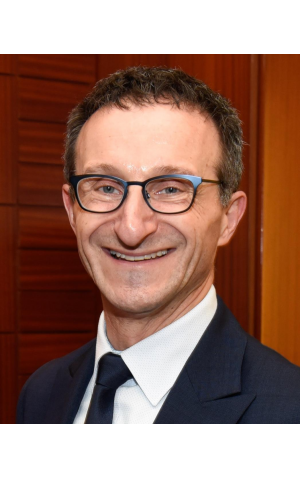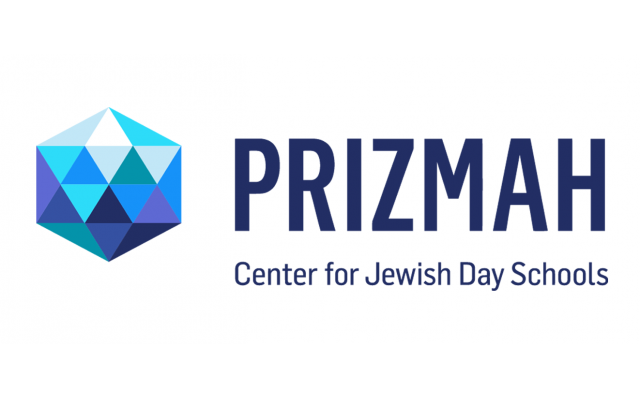Atlanta Jewish Day School Conference Challenges ‘Dare to Dream’
In this highly polarized era in which religions, organizations, even families are splintering, Prizmah: Center for Jewish Day Schools is a notable exception.
In this highly polarized era in which religions, organizations, even families are splintering, Prizmah: Center for Jewish Day Schools is a notable exception. The networking group – holding its biennial conference in Atlanta March 10-12 – is a merger of five Jewish day school organizations and more than 200 active schools.
The union, which was completed in July 2016, occurred because it was decided the groups “had more in common than what divided them,” Paul Bernstein, Prizmah CEO tells the AJT.
Among those commonalities are fundraising, enrollment and “what the leadership looks like.” The five groups were Pardes Institute of Jewish Studies; Partnership for Excellence in Jewish Education; RAVSAK: The Jewish Community Day School Network; Solomon Schechter Day School Network; and Yeshiva University School Partnership.
“It takes intentionality to help people work together,” Bernstein says. “It’s important to be respectful of what differentiates them. After all, an Orthodox school is still an Orthodox school. There’s not pressure to be what they’re not.”
A national organization like Prizmah is necessary, he says, because schools “wherever they are can learn from each other. We encourage shared learning and we do it with professional leadership and lay leaders.”
Indeed, about 1,000 representatives of both groups will attend the conference to be held in downtown Atlanta. Its theme is “Dare to Dream.” George Couros, author of “The Innovator’s Mindset” will headline the opening session. Other sessions will focus on how to run a school, fundraising, enrollment, leadership development and active Jewish learning, Bernstein points out, but it’s the “building of community that is so important everywhere. That’s why the conference is so important. The challenge for any leader is to get out of the day-to-day routine and to be in a place with peers in which they can learn from experts.”

In other words, Bernstein says, “How do we enhance the experience of those who came to education as a dream? We want to create a space where the educators can dream and think about what innovation they want to bring to their schools.”
Atlanta was chosen as a venue for this year’s conference partly because of the “fantastic Jewish community in Atlanta.” But whereas in other cities there’s a more diverse Jewish population and the Jewish day schools are less directly competitive, Bernstein contends, “We argue that even where they compete, they can also collaborate, and we’d like to encourage that.”
Jewish day schools, in general, face similar challenges, Bernstein adds, although there are differences as well. Orthodox day schools are “bursting at the seams” because the Orthodox population is growing. Since the economic collapse of 2008, however, the population of the non-Jewish day school is declining. Still, “affordability is a key question for all.”
According to Bernstein, “the future success of the Jewish community depends on a knowledgeable next generation of Jews. We see the investment in Jewish day schools as so important. That’s why we are active in encouraging family foundations and private people to be supportive of Jewish day schools. Day school alumni are key, so our communities must invest in day schools.”
He stressed the importance of fostering a connection with the communities that are home to the Jewish day schools in Prizmah’s network. To facilitate that connection with Atlanta, Bernstein pointed to the many excursions that will be offered to conference participants. In addition to visits to the various Atlanta Jewish day schools, there will be outings to the Center for Puppetry Arts; The Ron Clark Academy, a middle school that welcomes students from diverse socioeconomic and academic backgrounds across the Atlanta metro region; and Lab Atlanta, a semester-based program for 10th graders that opened in 2017. The Lab Atlanta school allows students to leave their home school and participate in an immersive, city-based design and innovative experience. There will also be a civil rights tour that will explore how Jews were involved in the struggles of African-Americans to gain equality. This tour will start at The King Center and continue through the Sweet Auburn Historic District.
According to Prizmah, participants will leave with educational tools to take back to their own schools as they cover the civil rights movement and the ongoing challenge of achieving equality today.
“We want to learn from the community, the Jewish world and beyond,” Bernstein said.
Prior to joining Prizmah, he served as CEO of The Pershing Square Foundation and as the global managing director of Absolute Return for Kids, a nonprofit focused on global health, education and child protection. Bernstein also co-founded ARK South Africa before returning to London in 2004 to lead ARK globally.




comments